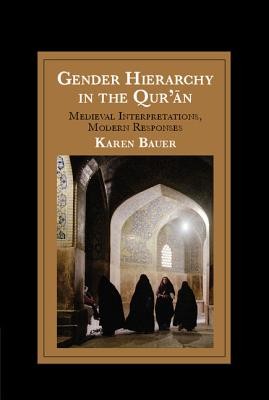
- We will send in 10–14 business days.
- Author: Karen Bauer
- Publisher: Cambridge University Press
- ISBN-10: 110704152X
- ISBN-13: 9781107041523
- Format: 15.2 x 22.9 x 2.3 cm, hardcover
- Language: English
- SAVE -10% with code: EXTRA
Reviews
Description
This book explores how medieval and modern Muslim religious scholars ('ulamā') interpret gender roles in Qur'ānic verses on legal testimony, marriage, and human creation. Citing these verses, medieval scholars developed increasingly complex laws and interpretations upholding a male-dominated gender hierarchy; aspects of their interpretations influence religious norms and state laws in Muslim-majority countries today, yet other aspects have been discarded entirely. Karen Bauer traces the evolution of their interpretations, showing how they have been adopted, adapted, rejected, or replaced over time, by comparing the Qur'ān with a wide range of Qur'ānic commentaries and interviews with prominent religious scholars from Iran and Syria. At times, tradition is modified in unexpected ways: learned women argue against gender equality, or Grand Ayatollahs reject sayings of the Prophet, citing science instead. This innovative and engaging study highlights the effects of social and intellectual contexts on the formation of tradition, and on modern responses to it.
EXTRA 10 % discount with code: EXTRA
The promotion ends in 17d.16:17:00
The discount code is valid when purchasing from 10 €. Discounts do not stack.
- Author: Karen Bauer
- Publisher: Cambridge University Press
- ISBN-10: 110704152X
- ISBN-13: 9781107041523
- Format: 15.2 x 22.9 x 2.3 cm, hardcover
- Language: English English
This book explores how medieval and modern Muslim religious scholars ('ulamā') interpret gender roles in Qur'ānic verses on legal testimony, marriage, and human creation. Citing these verses, medieval scholars developed increasingly complex laws and interpretations upholding a male-dominated gender hierarchy; aspects of their interpretations influence religious norms and state laws in Muslim-majority countries today, yet other aspects have been discarded entirely. Karen Bauer traces the evolution of their interpretations, showing how they have been adopted, adapted, rejected, or replaced over time, by comparing the Qur'ān with a wide range of Qur'ānic commentaries and interviews with prominent religious scholars from Iran and Syria. At times, tradition is modified in unexpected ways: learned women argue against gender equality, or Grand Ayatollahs reject sayings of the Prophet, citing science instead. This innovative and engaging study highlights the effects of social and intellectual contexts on the formation of tradition, and on modern responses to it.


Reviews